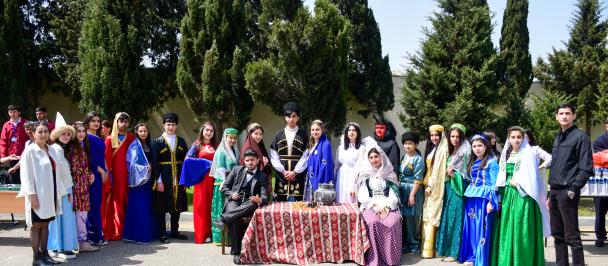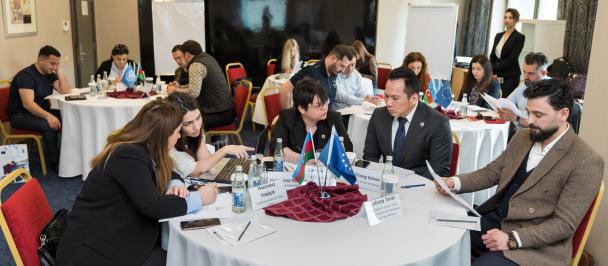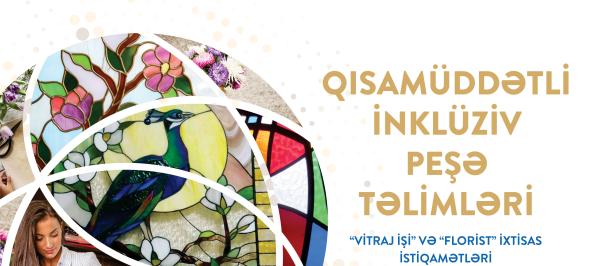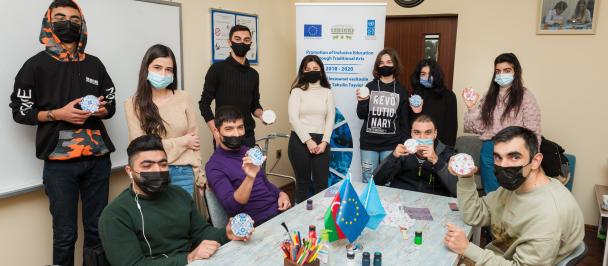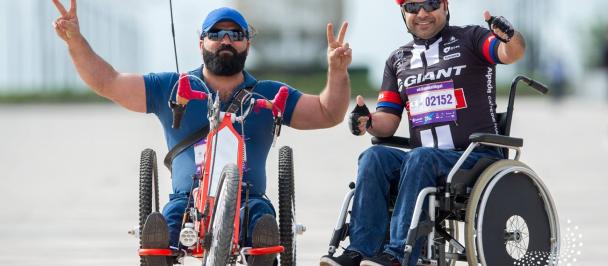As prepared for delivery
Your Excellency Ms. Arja Makkonen, Ambassador of Finland to Azerbaijan
Dear Minister Sahil Babayev, Minister of Labour and Social protection of the Population
Dear Mr. Hadi Rajabli, Member of Parliament (Milli Majlis), Chairman of the Labour and Social Policy Committee, National Assembly
Distinguished guests and delegates, members of the international community, civil society organizations and media
Dear ladies and gentlemen,
First of all, let me thank you all cordially for having me here today at the seminar that tackles one of the most urgent issues of our time –inclusivity and social integration of the world’s vulnerable social groups.
Promoting social inclusion of people with different abilities is at the forefront of national development priorities in Azerbaijan. We witness firsthand a strong commitment to improving the livelihood of people with disabilities, from the Government of Azerbaijan.
Discussions around disability rights also speak to the heart of UNDP’s own work around the world to achieve inclusive, equitable, and sustainable development as part of the 2030 Agenda and the Sustainable Development Goals. As UNDP Administrator Achim Steiner says, people with disabilities have rights, ability and dignity and their voice should be heard.
This comes at a crucial time for both the government, civil society, private sector and international community to mobilise and harmonise their efforts to make the world a better place for people with varying abilities. In a world where one billion people live with disability, making them the largest minority in the world, it’s an imperative to ensure that these folks have equal access and voice in society, and that they can realise their fullest possible potential.
In Azerbaijan, people with disabilities represent one of the biggest vulnerable groups of the population, which accounts for approximately 613,654 people, or 6.2% of the total population. We are pleased to see that the Government of Azerbaijan puts continuous efforts to promoting and creating equal opportunities for people with different abilities and ensuring that these people have sufficient social welfare benefits and privileges. However, it is everyone’s responsibility, not just the Government’s duty to create an inclusive society.
At UNDP, we work closely with our national and international partners to implement a number of projects aimed to improve the quality of life and enhance economic opportunities for people with disabilities.
We have currently two running projects funded by the Ministry of Labour and Social Protection of the Population and UNDP. One of them is our flagship self-employment programme, wich aims to create Inclusive and Decent Jobs for Socially Vulnerable Groups. This five-year initiative seeks to give people with disabilities
access to productive employment opportunities within the formal labour market in 12 regions and districts of Azerbaijan. These regions include Ganja, Mingachevir, Sumgayit, Shamkir, Zaqatala, Goychay, Barda, Shamakhi, Fizuli, Absheron, Sabunchu and Binagadi. As part of this landmark project, 500 persons with disabilities who have the desire and vision to start their own business but are currently unemployed will get the support they need to establish their business startups. The programme also provides free training to over 700 unemployed people with disabilities on entrepreneurship skills and offers advice and financial support to select individuals.
Earlier this year, we also have started another project with the Ministry of Labour and Social Protection of the Population, this time jointly with our sister UN agency UNFPA and at the initiative of the office of the First Vice-President of the Republic of Azerbaijan. This is a two-year major initiative to improve the livelihoods and well-being of up to 3,000 women with disabilities and veterans of the Nagorno-Karabakh conflict. Among other things, this programme will also support the launch of a new state-of-the-art Virtual Skills Development and Training Lab (V-Lab) for women with disabilities and war veterans offering them access to knowledge, information and employment opportunities through the use of modern ICT resources. A model art school has recently been established in Baku to promote social inclusion and offer a range of art skills to people with disabilities and is currently looking for interested individuals age 16 and older to enrol in the first acdemic year of arts programmes. As of spring 2020, the new art school will be located at the new DOST centre in the Binagadi region of Baku.
On yet another front, we work closely with the Administration of the Historic Old City –Icheri Sheher to promote inclusive education through traditional arts. Funded by our longstanding donor and partner the European Union, this three-year project provides access to vocational training for young women and men with and without disabilities in a spirit of inclusivity, where we learn to see ability beyond disability. Classes are offered on batik, beads, glass and woods crafting, with professional arts instructors, professional and paraprofessional social workers and psychologists on standby to support individual support to students to accommodate their development and learning needs. If you happen to be in the beautiful Icheri Sheher, don’t hesitate to stop by at our cosy arts workshop just a few steps away from the Executive Office of the Old City Historic-Architectural Reserve. Our staff and kids will be happy to see you there. Classes run on Tuesdays, Wednesdays, Thursdays and Fridays.
Earlier this summer, UNDP brought forward the first in Azerbaijan National Inclusivity Campaign called UNLIMITED, as part of the official launching of the UNDP Accelerator Lab in Azerbaijan. The first event of this National Campaign was the Inclusivity Hackathon, which brought together prominent industry experts from within Azerbaijan, but also from abroad, academia and people with disabilities. Over 70 people across 16 teams sat together working non-stop in a 48-hour challenge to develop innovative technology solutions and design prototypes that can make the life of people with disabilities easier and better.
Working restlessly for 48 hours, these 16 teams developed a wide range of prototypes and open source code solutions to tackle challenges facing people with disabilities. Profiles of the prototypes presented at the Inclusivity Hackathon were diverse and included platforms to modernise assistive devices to help people with vision and hearing impairments or speech disorders and applications to connect people with disabilities and volunteers willing to help them in different ways. Other ideas drew solutions to improve learning opportunities for people with varying abilities via gamification schemes, create mobile apps to measure the risk of autistic spectrum and offer job search websites and market place for craftsmen among people with disabilities. The winning team of the inaugural Inclusivity Hackathon was Team Delta Squad and their project called “NeverSeize” - a desktop program designed to prevent multiple effects of epilepsy trigger. Team Delta Squad was awarded 5,000 Azerbaijani manat and within three months following the award was able to operationalise the proposed desktop solution and turn it into a full-scale mobile and web solution.
Throughout the year, the nationwide inclusivity campaign will continue with a number of keystone events and new establishments to support inclusive education through traditional arts and create virtual labs to provide employment and learning support to people with disabilities, freestyle action to promote inclusivity through the sustainable ‘New Cities’ concepts, along with other planned events.
The Inclusivity National Campaign, as I mentioned earlier, is being championed by the UNDP Accelerator Lab, part of the world’s largest and fastest learning network of 60 Accelerator Labs –or AccLabs as we call them, across 70 countries of the world. Brought forward to revamp the development for the 21st century, the AccLabs are established to boost the impact of projects implemented in these 70 countries. Each Accelerator Lab has identified focus areas to achieve better outcomes in their respective countries, from block chain solutions to marine economy and a greener world. In Azerbaijan, for example, inclusivity has been identified as the top priority for our Accelerator Lab in Azerbaijan.
We believe that all of these joint efforts and earnest solutions and initiatives will have a lifelong transformative impact on people with disabilities in Azerbaijan.
In concluding, I would like to take this opportunity to reiterate that the UNDP office in Azerbaijan stands ready to support its national and international partners in the implementation of a broad range of inclusivity initiatives. We are open for any cooperation and will offer support in creating a platform for all these initiatives, inspiring many more individuals and organizations to take action for inclusivity.
Thank you!

 Locations
Locations